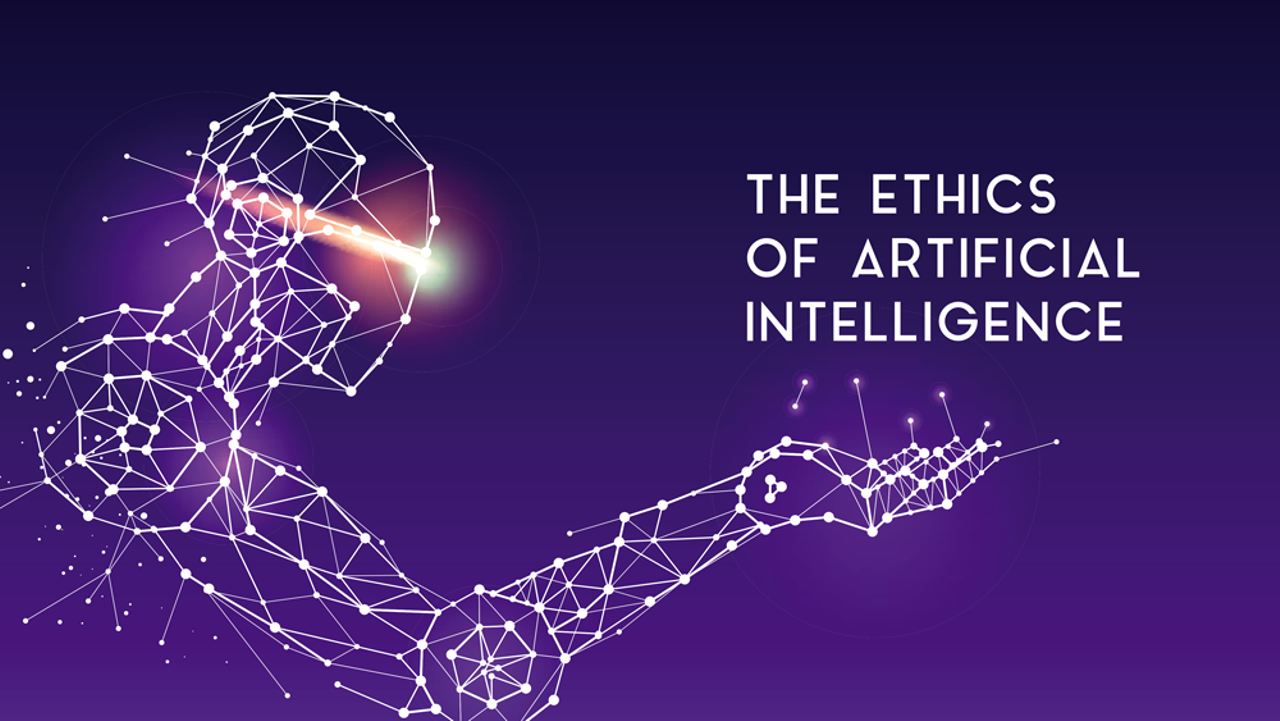
Artificial intelligence (AI) has transcended the realm of science fiction and is now deeply embedded in the fabric of our daily lives, revolutionizing industries and the way we interact with technology. In the United Kingdom, AI has not only become a buzzword but a fundamental force driving innovation and change across various sectors. However, with great technological power comes great ethical responsibility. This article delves into the ethical challenges and responsibilities that accompany the ongoing AI revolution in the UK.
Read More: AI Startup Gives You A New Face To Protect Your Medical Privacy
Contents
- 1 The Ethics of AI: Balancing Progress with Responsibility in the UK
- 2 Understanding AI Ethics
- 3 The AI Revolution in the UK
- 4 Ethical Dilemmas in AI Development
- 5 The Legal Framework
- 6 Balancing Progress and Responsibility
- 7 Ethical Considerations in AI Applications
- 8 The Role of AI Developers
- 9 Transparency and Accountability
- 10 Public Perception of AI Ethics
- 11 International Collaboration
- 12 Conclusion
- 13 FAQs
The Ethics of AI: Balancing Progress with Responsibility in the UK

The UK’s journey into the realm of AI has brought about profound transformations. AI, which was once an abstract concept, has now materialized into a powerful and potentially transformative force. However, the path to harnessing this power is fraught with ethical dilemmas and complex responsibilities.
Understanding AI Ethics
AI ethics comprises a set of principles and guidelines that govern the behavior and decisions of AI systems. It’s about ensuring that AI systems are developed and employed in ways that align with human values and do not harm individuals or society at large. These principles form the bedrock of responsible AI development, and they are crucial for the future of the technology.
The AI Revolution in the UK
The United Kingdom has been at the forefront of the AI revolution. Advancements in machine learning, natural language processing, and computer vision have led to the automation of various processes. This has increased efficiency, enhanced decision-making, and improved overall productivity in sectors ranging from healthcare and education to finance and manufacturing.
Ethical Dilemmas in AI Development
The rapid development of AI brings with it a set of ethical dilemmas. The most pressing of these issues are bias in algorithms, privacy concerns, and job displacement. These dilemmas highlight the need for developers and stakeholders to navigate the challenges while pushing for technological progress.
The Legal Framework

To address these concerns, the UK government has introduced a comprehensive legal framework emphasizing the responsible use of AI. This framework provides guidelines for transparency, accountability, and the fair treatment of individuals affected by AI systems. It aims to strike a balance between technological innovation and ethical responsibility.
Balancing Progress and Responsibility
The core challenge is to strike a harmonious balance between AI progress and ethical responsibility. Developers, organizations, and policymakers need to engage in a constant process of assessing the consequences of AI innovations and their impact on society. This balance ensures that AI remains a force for good and does not inadvertently harm individuals or communities.
Ethical Considerations in AI Applications
AI in Healthcare
AI has the potential to revolutionize healthcare, offering applications in diagnostics, treatment recommendations, and patient care. However, ethical considerations, such as patient privacy and data security, are of paramount importance. It’s essential to ensure that AI in healthcare adheres to the highest ethical standards.
AI in Criminal Justice
The use of AI in criminal justice, including predictive policing and sentencing algorithms, raises concerns about fairness, transparency, and potential bias in decision-making. Striking a balance between leveraging AI for more efficient law enforcement and ensuring ethical practices is a critical task.
AI in Education
AI can enhance personalized learning experiences, tailoring education to individual needs. However, it also raises concerns about data privacy, equity, and the role of teachers in the learning process. The responsible integration of AI in education is essential for nurturing the next generation.
The Role of AI Developers
Developers are at the forefront of ensuring ethical AI. They must prioritize fairness, transparency, and accountability in the design and deployment of AI systems. Their decisions can shape the ethical landscape of AI technology, and their ethical commitment is paramount.
Transparency and Accountability
Transparency in AI development involves making the decision-making process of algorithms understandable and accountable. It’s about being open and honest about how AI systems make choices and decisions. This transparency is essential for building trust and ensuring that AI is developed responsibly.
Public Perception of AI Ethics
The public’s perception of AI ethics is vital. Bridging the gap between technical experts and the broader community is necessary to ensure that AI is developed and used responsibly. Public awareness and engagement in AI ethics discussions are critical to shaping the ethical landscape.
International Collaboration
Collaboration on AI ethics knows no national boundaries. The UK must engage in international partnerships and share best practices to address global AI challenges. Cooperation on ethical standards, guidelines, and approaches will be instrumental in navigating the complexities of AI in an interconnected world.
Conclusion
In conclusion, the ethics of AI are at the heart of responsible AI development and use in the UK. Striking the right balance between progress and responsibility requires a concerted effort from all stakeholders. The future of AI in the UK depends on our ability to navigate these ethical considerations effectively, ensuring that AI remains a force for good and a responsible contributor to societal progress.
Read More: Using AI to Fight Social Media Lies, Fake Accounts and Bots
FAQs
- What exactly are AI ethics, and why are they particularly important in the UK? AI ethics encompass guiding principles for the responsible development and use of artificial intelligence. They are particularly important in the UK due to the rapid adoption of AI, emphasizing the need to ensure technology aligns with human values and does not harm society.
- How is the UK government addressing AI ethics through its legal framework? The UK government has introduced a comprehensive legal framework to guide the ethical use of AI. It provides guidelines for transparency, accountability, and the fair treatment of individuals affected by AI systems, striking a balance between innovation and ethical responsibility.
- What role do AI developers play in ensuring the ethical development of AI? AI developers play a pivotal role in ensuring ethical AI development. They must prioritize fairness, transparency, and accountability in the design and deployment of AI systems, shaping the ethical landscape of the technology.
- What are some of the key ethical considerations when applying AI in healthcare, criminal justice, and education? Ethical considerations in healthcare include safeguarding patient privacy and ensuring data security. In criminal justice, it’s crucial to address fairness, transparency, and potential bias in AI-driven decisions. In education, ethical concerns revolve around data privacy, equity, and the role of teachers in personalized learning.
- How can international collaboration help address global AI ethics challenges, and why is it important? International collaboration is vital for addressing global AI ethics challenges. It allows countries to share best practices, ethical standards, and approaches, fostering a responsible and ethical global AI community. Collaboration is essential in an interconnected world where AI has far-reaching implications.








2 Comments